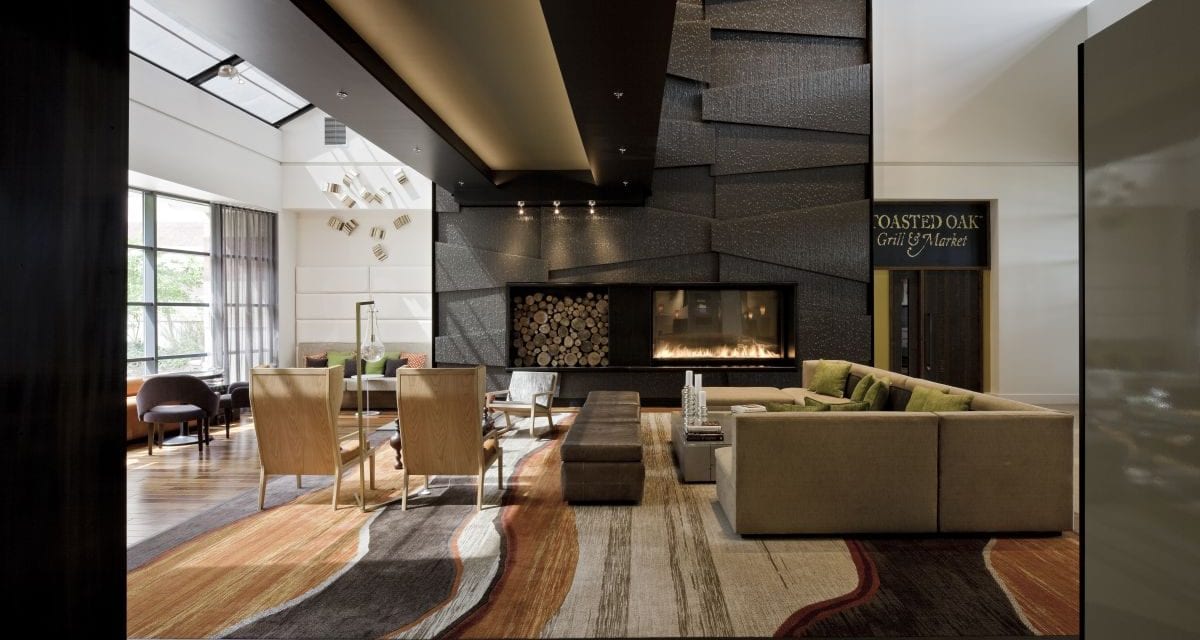For some reason, healthcare executives like to equate stuff in their lobby to person-centered care. Player pianos. Coffee for visitors. Seating areas with plants.
For some reason, healthcare executives like to equate stuff in their lobby to person-centered care. Player pianos. Coffee for visitors. Seating areas with plants. Leaders that were eager to tell me about how they are “doing” culture change have proudly presented each of these examples to me. Pathetic . . .
The greatest pianist, coffee or seating does not make up for the fact that most healthcare organizations deprive people of their dignity and individuality.
Extreme? . . . . . Perhaps. True? . . . . Absolutely.
The idea of person-centered care is not new. It has a long history in various levels of healthcare. Yet, somehow, the concept of person-centered care still struggles for the respect that clinical outcomes, quality measures and even financial results get.
But is what a person wants any less important than what a person needs?
Don Berwick, former CMS Administrator, describes himself as an extremist in his article on patient-centered care. It is one of the best article I have read on the subject. In the article, Berwick addresses common objections that I often see. One objection is, “What do we do if a residents wants something crazy or foolish?”
In a training seminar that I recently conducted, a staff member asked, “Do people just get anything they want now?” The answer is “Yes!” On rare occasions a “No” may be necessary.
BUT we shouldn’t make blanket policies that affect everyone based on one situation.
As Berwick writes, “…rare occasions make for very bad rules for the usual occasions.” Recognize that person-centered care goes beyond customer service and aesthetics. It asks, “What do you need and want?”
It acts on the answer and then asks, “How could I do better?” Berwick shares some ways to bring patient-centered care alive:
Control – Give control over to residents and the loved ones they choose. Take over control rarely, and only with permission.
Transparency – Share outcomes, processes, and errors freely. Apologize when things go wrong.
Individualization – While the environment is important, the focus of culture change should be on creating systems that are adaptable to individuals.
Training – All staff should be equipped with the skills they need to support residents’ needs and wants.
What do YOU think? Is coffee in the lobby enough or should you say “yes” to everything a resident wants or needs? Is the answer somewhere in the middle or is that a slippery slope back to mediocrity?
Learn more about who Denise is at denisebscott.com
To receive “Ideas to Inspire”, Denise’s free, quick-read strategies on improving employee engagement and individualized care, subscribe here.









I agree 100%! For many, they consider a new coat of paint and some renovations a “person centered” approach. Meanwhile, the medical model of care still runs the building.
It is my belief that so many leaders panicked a few years ago and did superficial changes to sell customers on thier buildings. The employee systems never changed, so residents still have limited choices, the same dining style, etc.
It will take time and an influx of new leaders to make true change happen.
Thanks for sharing your thoughts Chris! As my grandmother would say, “It’s like lipstick on a pig!” The good news is that it won’t take all new leaders. I have seen people change in very dramatic ways when their eyes are opened to the benefits of a different leadership style. They see that they can be happier in their job, staff are more engaged, and residents are living better lives. Granted some have no interest in doing things differently, but with the ever increasing demands in our field, I’m not sure how long they will last.
Fabulous!
It’s exhausting for those of us who are trying to showcase the importance of staff training and equipping the frontline staff with both the knowledge, tools and support that is absolutely necessary for them to do their jobs well, when we are met with ‘resistence’ from executive leadership who claim that there is “no money in the budget”. However, new paint, fancy furniture and all the other lipstick-on-the-pig measures are considered vitally important.
Our eldercare consumers are much more savvy, than the industry leaders realize. They can see through the ‘fluff’ and are more apt to recognize, unmotivated and under trained staff, poor activity programs, and HIGH staff turnover. (which is a typical result of being unappreciated and unsupported).
This is FANTASTIC! Too often we get caught up in doing “the right thing” and we lose sight of the real needs or wants. And truthfully, it’s a lot more work to actually assist residents in what they want. It’s easier to say, “You have nothing to complain about, I gave you coffee in the lobby”!
Thank you so much for sharing this.
Thank you Ellen for your comments! Fortunately, I think the times they are a changin’ and it is not going to be fluff to have engaged staff that can think on their feet, and interact with residents and family members in a way that supports the goals of the organization.
Nikki thanks for the feedback! It is easy to get caught up in all of it isn’t it? I know when I was an administrator I had to constantly force myself to not fall back into bad habits. What I found though, over and over again, was investing time building relationships and supporting a meaningful life for residents saved me time in the end…and made my job a whole lot more enjoyable!
I wholeheartedly agree! This is the reason why I got into coaching, I realized after working on myself first, that these facilities could greatly improve if they had the tools to help them make the necessary changes/adjustments. I have worked with Assisted Living Facilities since 1995 and there is truly a need for the awareness that coaching can provide, this will set them free from their limitations as well as provide them the means to give a service that not only addresses the physical aspect of their residents but also their spiritual and emotional states. The administration and staff will greatly benefit and their job will not only be done better but they will feel empowered and secure in what and how they are contributing to the well being of these elderly people they care for. Benefits? peace in the ALF, positive problem solving, better communication, increase in profits, decrease in staff turnovers, happy residents, happy family members and a lot more!
Thanks for sharing your thoughts Hortensia! What an impact it has when leaders become aware of how their style impacts the community they work in. When they start using different tools to encourage the empowerment of residents and staff, positive financial, clinical and quality outcomes follow.
From LinkedIn Groups
Excellent article about the importance of creating empowered community cultures, which is similar to but not the same as patient centered care. Empowerment is about caring not care. The article also seemed to blend member-centric customer service with policies to enhance member autonomy. I totally agree with the importance of frontline training, but true culture change is not possible without the total support of senior management. I have found the biggest challenge is overcoming department resistence to giving up control or a senior executive that can talk the talk but balks when it comes to walking the walking. I have actually had ED and COO accuse me of “recommending that the inmates run the asylum.”
By G. Richard ‘Dick’ Ambrosius
Thank you Dick for your comment! I love the inmates running the asylum quote! It’s difficult for some leaders to see the need to change how they interact with their team. Some are exposed to a different way of leading and it clicks immediately, others fight it for a while but then realize what a benefit it is to them and their organization. However, I’m convinced that for most people when they know better they do better!
I totally agree, I have worked as an Activity Professional for over 30 years. New Administrators would come to the facility and their first order of business was to change the environment into a “hotel” like facility. They never fooled the elders. My job was to provide activities that the elders wanted. Oh it was “risky” sometimes, but as an elder advocate I would still figure out a way to provide for what they wanted to do. I thnk that most Activity Professionals provide activities that the elders want and if it is a “risk” then it’s up to the AD to consider the individual needs and interests of the elders. So person centered to me means meeting the elders needs and interests, not mine and not what may “look good”. Thanks for the article!
Kathy, thanks for sharing your insights! As an activity professional it sounds like you were really supporting the voices of the residents you were with. As a former administrator I know it’s easy to get caught up in what looks good to market the community and in it all you forget what really matters….the people that live there. Keep advocating!
Hi Denise,
Thanks so much for your direct commentary on this. It is refreshing to have direct honest conversation.
I started an interview series “What Baby Boomers Want” on my site and just two days ago I interviewed a 69 year old(just older than a baby boomer) woman. She was telling me, while rolling her eyes, that she had received a packet of marketing materials in the mail from this very nice assisted living. But as she was going through all it’s beautiful amenities she was simply turned off. Essentially she told me she did not care about all that. It felt so “contrived”. More than anything she wanted it to feel as much like home as possible -and a hotel with long hallways and scheduled meals, in a nice dining room, is not home. It made her feel more fearful of going to an assisted living home, not less.
Thanks again,
Kelly
Thanks for sharing that story Kelly! Have you read this article from Martin Bayne? Your story made me think of it.
http://newoldage.blogs.nytimes.com/2013/03/20/how-to-live-in-assisted-living/#more-14875
I look forward to checking out your site, “What Baby Boomers Want” sounds like an interesting topic!